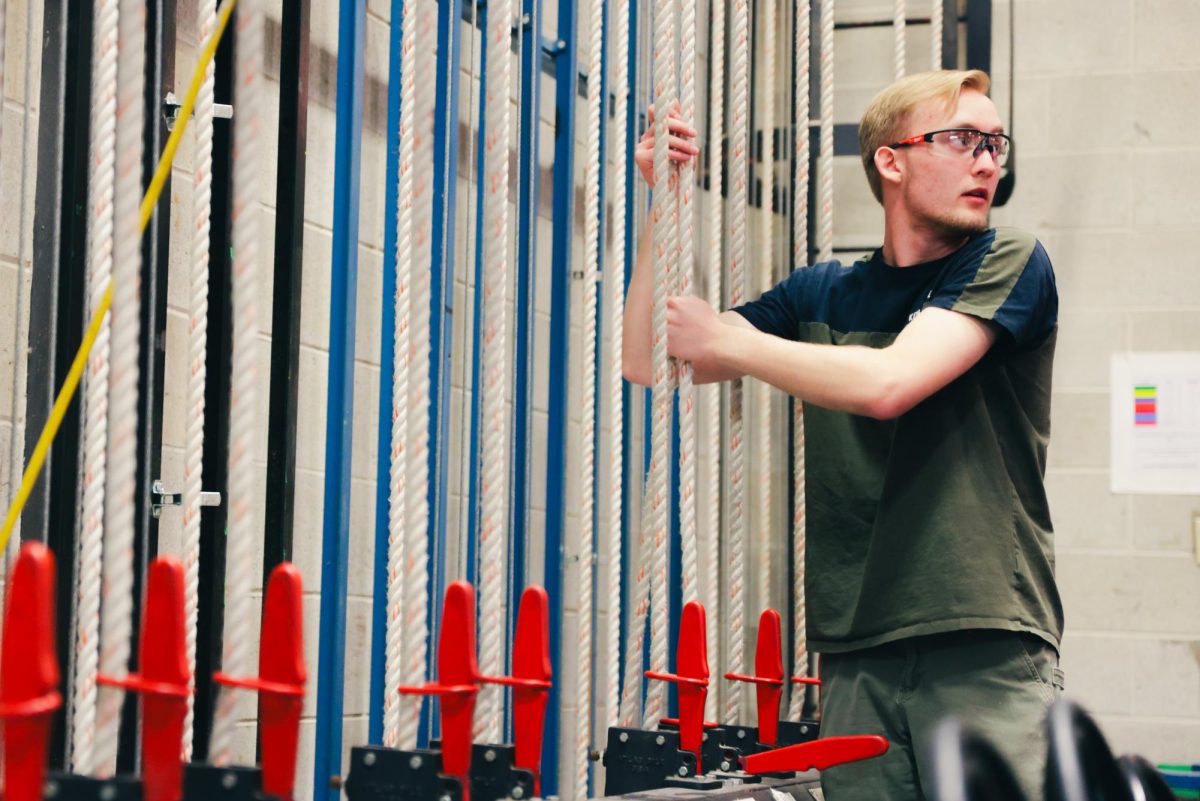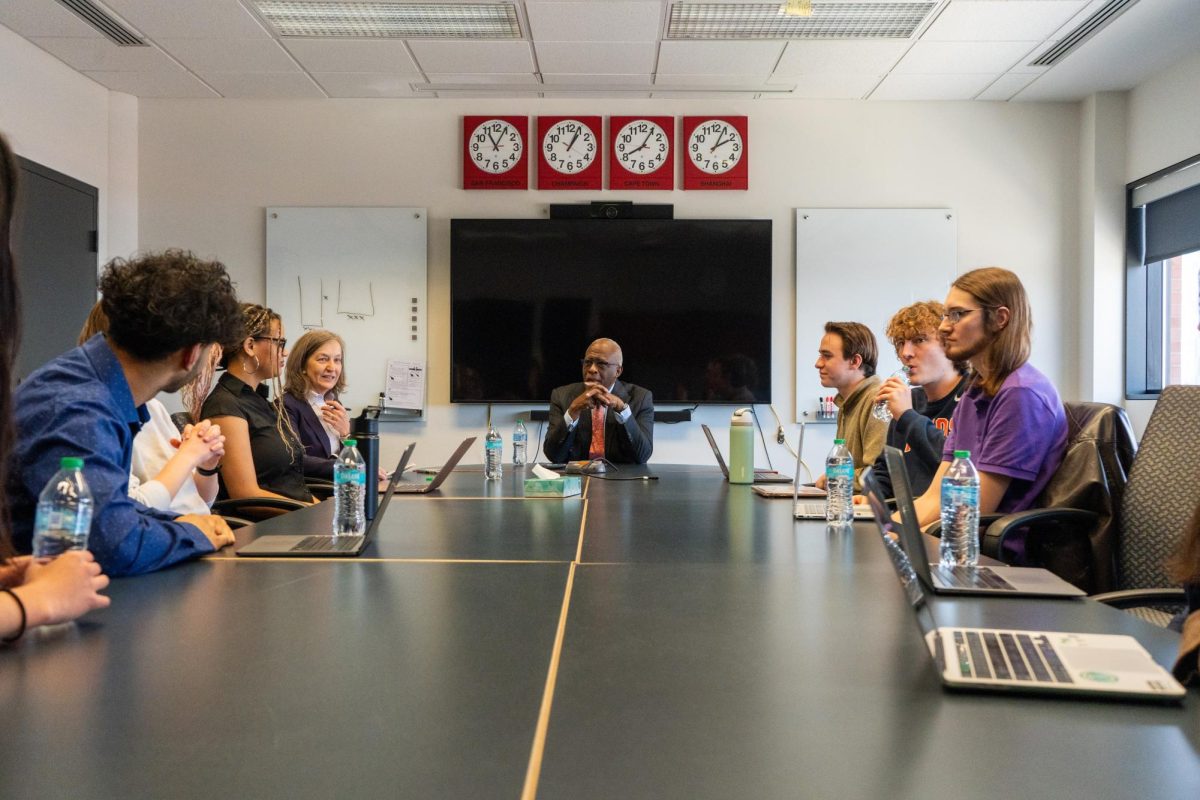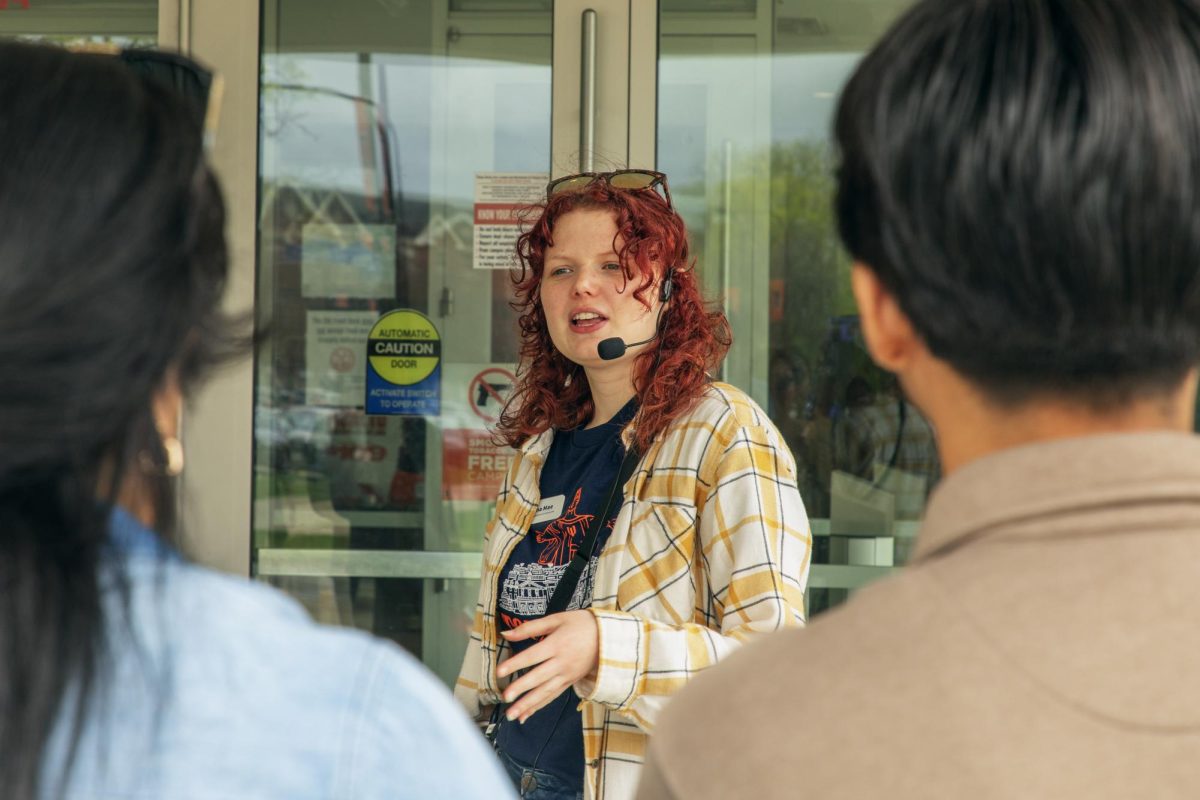As the lights dim and the curtain falls, it’s easy for audiences to overlook the orchestrated chaos happening behind the scenes. It’s even easy for those involved in theater to underestimate the value of that work while it is ongoing.
Yet, every set piece, every lighting cue, every crafted sound and every detail enlivening shows cannot be understated. These efforts come from hours of relentless work from a dedicated team of theater production students.
At the University of New Mexico, Emmaleah Stapp concentrated her theater studies on lighting design. While at UNM, she designed the lighting for a dance piece, carefully selecting shades that complemented the performance.
However, the dancer looked at Stapp’s male professor with visible skepticism. Stapp recalled that her eyes silently asked, “What is she doing? What is she doing? I don’t trust her.”
“I faced a lot of hardships with being a young woman in the space,” Stapp said. “It is (mainly) men in lighting … I don’t think I was very respected, or (others didn’t think) I could do much with the knowledge that I had learned.”
Get The Daily Illini in your inbox!
Stapp — now a junior in FAA — transferred from UNM to the University and shifted from lighting design to stage management. She thrives under the pressure of being everyone’s go-to person.
Her responsibilities include spending an average of 40-plus hours a week in rehearsals, managing technical aspects like props and costumes, writing reports and creating schedules.
Stapp manages these tasks while also answering questions about “what’s next,” often sending more than 60 emails each night. These emails include rehearsal reports and daily calls — schedules for the following day.
The hectic nature of theater production is familiar to other students, like Trinity Nett, junior in FAA. As head electrician, Nett spends 30-40 hours a week completing paperwork before tech rehearsals. She compiles information provided by the lighting designer into packets for the electricians. Nett then guides the electricians as they assemble, hang and circuit the lights.
The process requires constant checking and re-checking. She compared it to preparing for a final — one that lasts for over two weeks. Nett puts her outside life on hold. While she finds fulfillment in the work, it can still be exhausting and defeating.
“There’s always a point in tech where you’re just doing too much work, or you feel like it’s too much, and I’m like, ‘Wow, I’m not getting enough recognition for this,’” Nett said. “I remember a show I did, and they didn’t even put me on the program after I put in so many hours of work.”
In addition to the extensive hours, misunderstandings can arise about the expertise and roles of theater production students.
Drew Bagby, sophomore Parkland Pathway student, worked as the summer sound designer at Southern Illinois University Edwardsville. An older staff member frequently corrected him on how to lay cable properly, even though Bagby had completed the task in that specific way as instructed.
“I’m younger,” Bagby said. “I’ve always been the younger person … People honestly think you’re green (inexperienced) just because you’re young, so they think you don’t have the knowledge that you do … which is interesting since some people don’t ask (about) your background or how long you’ve been doing this. They just go off your age.”
Despite these challenges, the three students remain committed to their respective crafts. They each work to build a long-lasting collaborative community.
Additionally, each has developed transferable skills that extend beyond theater. These skills include communication, adaptability and, most importantly, time management.
“I think the hardest part of it all is you’re dedicating so much of your time; your evenings are gone for months at a time,” Stapp said. “And you kind of have to figure out how to be a full-time student and a full-time stage manager.
“And a lot of us have part-time jobs. A lot of us are in other RSOs. It’s a true test to our time management, but usually, it is all worth it by the time the show opens and closes.”
For Bagby, the payoff came in Fall 2024 when he spent 40 hours in a week ensuring that a 360-degree soundscape ran flawlessly for Parkland Theatre’s “12 Angry Jurors.” One of his contributions was car horns echoing throughout the room when actors opened a functional window.
It’s a meticulous craft, according to Bagby. Designers precisely select specific noises for the various elements within a show, like birds chirping or the aforementioned horns.
“If the sound is off just a little bit, people will notice, and it kind of brings people out of the whole story,” Bagby said. “If you’re in 1942 and you hear a current car honk, you’re like, ‘That’s not (right).’”
Nett feels most rewarded by the support system she’s built around herself. She showcased her lighting design skills in October Dance 2024: REWIND/REMIX, which garnered recognition from her friends and family.
Stapp recalled a recent moment when she felt appreciated for her unwavering devotion to her craft, proudly representing the stage management department.
“After we closed (the) Theatre Studies New Works (Project), the actors had bought flowers for me and the assistant stage manager, Sofia (Cruz), and that felt like a culmination of all our work and dedication to that team,” Stapp said. “It’s very rare that stage managers get flowers.”
Although uncommon, Stapp said it felt like a real recognition for the work put into the performance. Theater production students tirelessly labor behind the curtains, and despite this lack of visibility, they appreciate their flowers, too.







